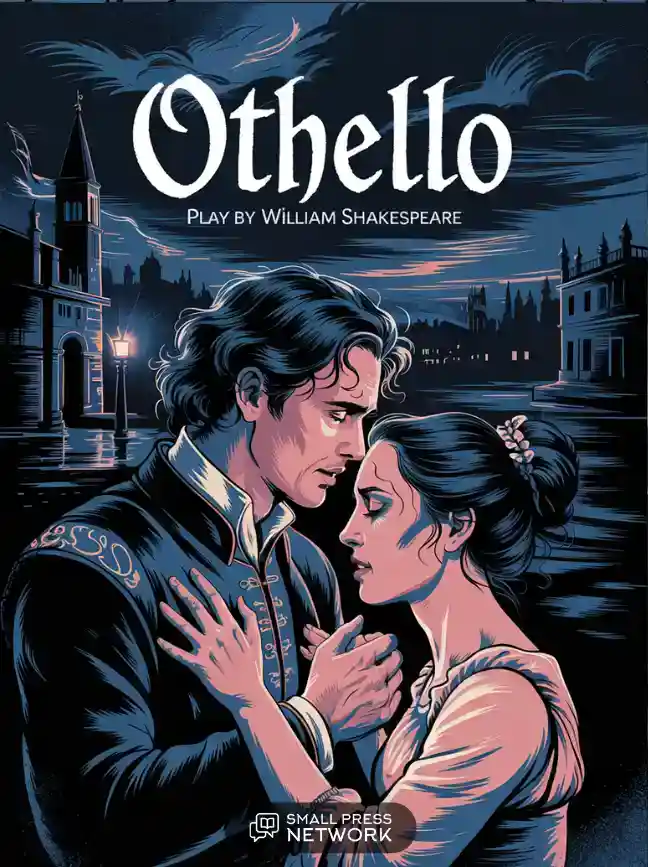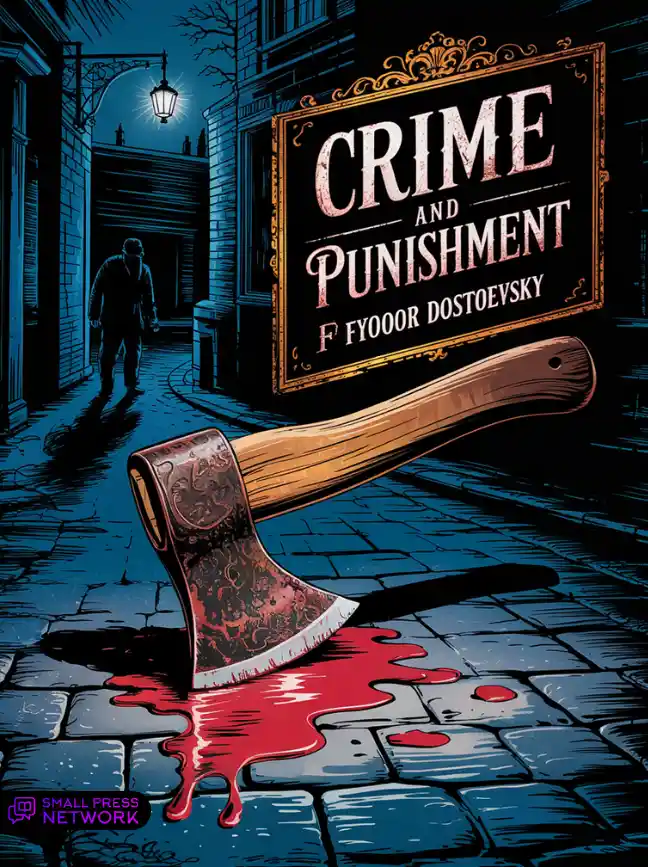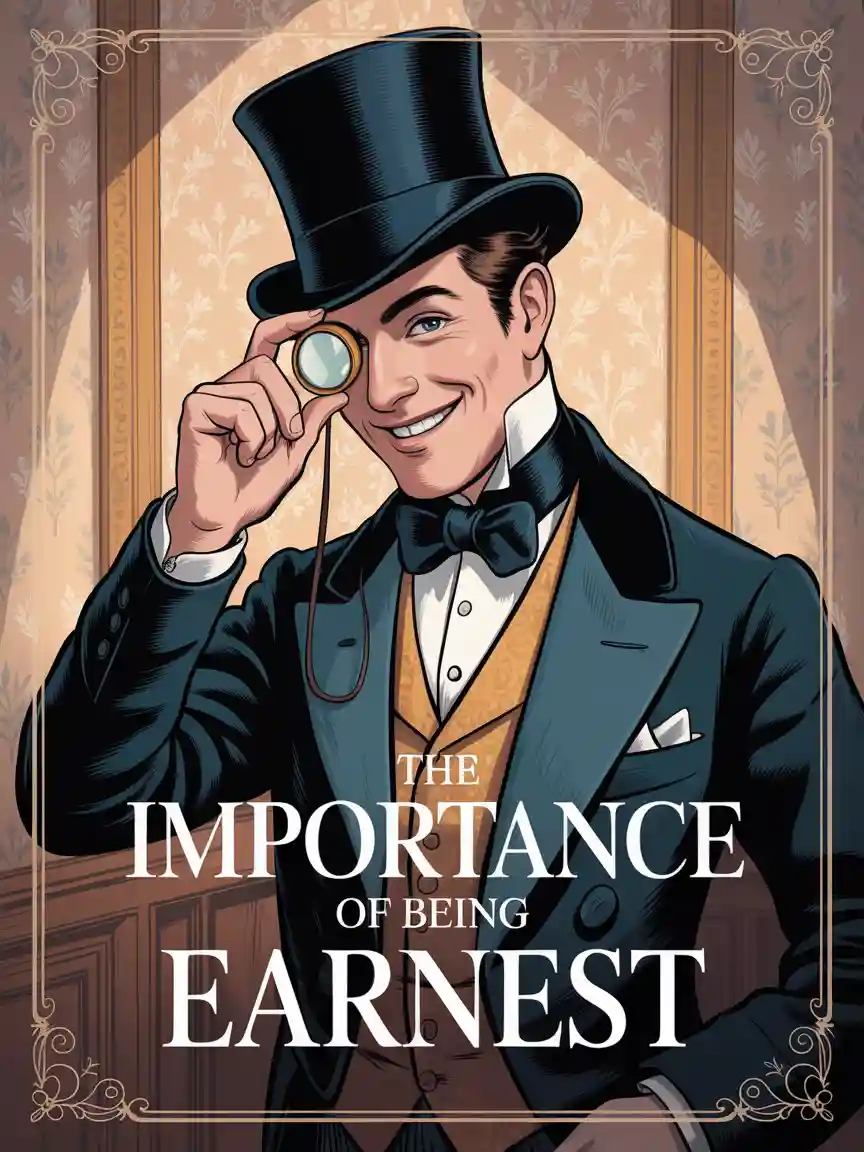(Aemilia, before the door.)
Aemilia.
My lord, my lord! Hey! My lord!
Othello. What noise is this?—Not yet dead? Not quite dead? Cruel as I am, I am merciful; I would not have you suffer long—Now, now.
Aemilia (at the door)
What? Hey! My lord! My lord!
Othello.
Who’s there?
Aemilia.
Oh my dear sir, I would just like to say a word to you.
Othello. Yes, it is Emilia—In a twinkling—she is dead—She will probably bring me the news of Cassio’s death—The uproar was great—Ha, you stir not now? Still as the grave. Shall I let her in? Were it well? I think she stirs again—No—What is best? If she comes in, she will want to speak to my wife; my wife? My wife? What wife? I have no wife—O unbearable! O anxious hour! Methinks there should now be a thick eclipse of the sun and moon, and the terrified earth should tremble with terror—
Aemilia. I beg you, just a few words, alas! My dear lord!
Othello.
I had forgotten you; oh, come in, Aemilia. Gently,
at once, I must first draw the curtain.—Who are you?
What do you want?
(He unlocks the door.)
(Aemilia comes in.)
Aemilia.
Ah, my lord, a horrible murder has been committed!
Othello.
How? now?
Aemilia.
Just now, my lord.
Othello. The moon is to blame; she has come nearer to the earth than usual, and now all the people are going mad.
Aemilia.
Cassio has killed a young Venetian named Rodrigo.
Othello.
Rodrigo killed? And Cassio killed?
Aemilia.
No, Cassio is not dead.
Othello.
Cassio is not dead? So revenge is only half satisfied.
Desdemona.
O unjust, unjust murder!—
Aemilia.
God help us! What is this noise?
Othello.
That? What?
Aemilia.
O heavens, it was my lady’s voice. Help, help!
Hey! Help! O lady, speak on; English Desdemona,
O my dearest mistress, speak!
Desdemona.
I die innocent.
Aemilia.
Oh, who has committed this terrible deed?
Desdemona. No one but myself farewells; I bring my last greetings to my kind husband; oh, farewell.
(She dies.)
Othello:
How, how could she have been murdered?
Aemilia.
Oh God! Who knows?
Othello.
You heard her say it was not me.
Aemilia.
She said it like that, I can’t say anything else.
Othello. She went to hell as a liar; it was I who murdered her.
Aemilia.
Oh, she is all the more angelic now, and you are all the blacker
a devil.
Othello.
She surrendered to frivolity; she was a whore.
Aemilia.
You blaspheme her, you are a devil.
Othello.
She was as false as water.
Aemilia.
And you’re quick as fire when you say that. Oh, she was an
angel of innocence.
Othello. She let Cassio cover her; ask your husband if you don’t believe it. What pit in the fiery hell would be deep enough for me, if I had gone so far without the strongest reasons? Your husband knows all.
Aemilia.
My husband?
Othello.
Your husband.
Aemilia.
That she was unfaithful to her marital bed?
Othello.
Yes, with Cassio. If she had been faithful, believe me, if
heaven had wanted to make me another world like this out of a single whole
chrysolite, I would not have given her for it.
Aemilia.
My husband!
Othello. Yes, it was he who first gave me tidings of it. He is an honest man, and an enemy of foul deeds.
Aemilia.
My husband!
Othello.
What is the use of this double exclamation, woman? I say, your husband.
Aemilia. O my mistress! Deceitful malice has betrayed jealous love, and you are the victim. My husband is said to have said she is unfaithful!
Othello.
He, woman; I say, thy husband; dost thou understand the word? My
friend, thy husband, the honest, upright Iago.
Aemilia. If he says so, may his wicked soul perish in slow, tormenting torments! He lies it in his heart! She loved the hateful devil with whom she had burdened herself only too much.
Othello.
Ha!—
Aemilia.
Do your worst; this horrible deed you have done is
no more worthy of heaven than you were of it.
Othello.
Silence would be most advisable for you.
Aemilia. You cannot be half so inclined to do me harm as I wish: O arch-deceiver! O foolish fellow! Stupid as dung! You have done a deed—I care nothing for your sword, I will make known who you are, and if I had twenty lives to lose—Help! Help! Hey! Help! The Moor has killed my wife. Help, help!
Scene Eight.
(Enter Montano, Gratiano, Iago, and others.)
Montano.
What’s going on here? What does this mean, General?
Aemilia.
Oh, are you here too, Iago? You’ve gone so far that
people blame their murders on you.
Gratiano.
What does this mean?
Aemilia. Contradict this villain, if you are a man; he says you told him his wife was unfaithful. I am sure you did not say it; you are no such villain! Speak, my heart is so full it will burst.
Jago. I told him what I thought; and no more than he himself found credible and true.
Aemilia.
But did you ever tell him she was unfaithful?
Jago.
Yes, I did.
Aemilia.
So you told a lie. A hateful, damned lie; upon
my soul, a lie; a cursed lie. Was she unfaithful to
Cassio? Did you say, to Cassio?
Iago.
With Cassio, woman; go, go, and let your tongues be laid.
Aemilia. I will not; I will, I must speak; it is my duty to speak. My wife lies murdered here in her bed.
All of them.
Heaven forbid!
Aemilia.
And your whining was the impetus for this murder.
Othello. No, don’t look so frightened, gentlemen; it’s true, it’s really so.
Gratiano.
That’s a damned truth.
Montano.
Oh, tremendous deed!
Aemilia.
Villainy! Shameful attempted villainy! I see—I smell it— Damned villainy!—I thought at once—Oh, I would lay hands on myself
for pain —oh villainy! Villainy!
Iago.
What, are you mad? I command you, pack yourselves home.
Aemilia. My good lords, allow me to speak; I owe him obedience otherwise, but not now: Perhaps, Iago, I shall never go home again.
Othello.
O! O! O!
(He sinks onto the bed.)
Aemilia.
Yes, just lie down and weep: you have
killed the most amiable innocent who ever breathed.
Othello (startling). O, she was vicious!—I only now recognize you, uncle; here lies your niece, whose breath, I confess, these hands have but just stopped; I know this deed looks horrible.
Gratiano. Poor Desdemona! I am glad your father is dead: your marriage cut short his life. Were he alive, this sight would drive him to despair; yea, he would curse his good angel from his side and die in despair.
Othello. It is pitiable; but Iago knows that she has committed the shameful deed with Cassio a thousand times. Cassio has confessed it; and in retribution for his trials of love, she gave him what I had first given her; I saw it in his hand; it was a handkerchief, an old keepsake that my father had given my mother.
Aemilia.
O heaven! O heavenly powers!
Jago.
Shut up, I tell you!
Aemilia. It must come out, it must come out—me, silent? Let angels, men, and devils, let them all, all, all cry shame over me if I don’t speak.
Iago.
Be wise and go home.
(Iago wants to murder his wife and is held back.)
Gratiano.
Use your sword against a woman!
Aemilia. O you foolish Moor! I found this handkerchief you speak of by chance, and gave it to my husband, who often begged me most earnestly (more, in fact, than such a trifle was worth) to steal it.
Jago.
Damned whore!
Aemilia. She’s supposed to have given it to Cassio? Woe is me! I found it and gave it to my husband!
Jago.
Raven-ass! You lie.
Aemilia. By heaven! I do not lie; I do not lie, gentlemen; O you murderous fool! What could such a fool do with so excellent a woman?
(Iago breaks free, wounds his wife, and escapes.)
Othello.
Are there no thunderbolts left in heaven? What good is thunder then?
Outrageous rascal!
Gratiano.
She falls; he has killed his wife—
Aemilia.
Yes, yes; oh, lay me by my wife’s side.
Gratiano.
His wife was murdered, and he ran away.
Montano. That is a terrible villain! Take this sword into safekeeping, lest the Moor seize it. Come, occupy the outer doors, do not let him through; kill him first. I myself will go after that villain; he is a damned fellow!
(Montano and Gratiano leave.)
Ninth Scene.
Othello. I am no longer brave either; every petty scoundrel takes my sword away. But why should honor outlive virtue? Let everything always perish!
Aemilia. What did your song mean, my mistress? Listen, can you hear me? I will make a swan and die singing; (Willow, willow, willow—)—Moor, she was chaste; she loved you, cruel Moor; so may my spirit see bliss as I speak the truth, and this truth—be my last word—
(She dies.)
Othello.
I have another sword in this room, a Spanish
blade, tempered with water from the Ebro; oh, here it is: uncle,
I must go.
Gratiano (at the door.) If you attempt it, it will cost you dearly; you have no weapon, and you must submit, whether you like it or not.
Othello. Then look in and speak to me, or I will have you without a gun.
(Gratiano enters.)
Gratiano.
What do you want?
Othello. Lo! I have a gun; a finer one never hung on a soldier’s hip. I have seen the day when, with this little arm and this good sword, I made my way through more obstacles than twenty such sentinels as you are. But, O vain boasting! Who can master his fate? It is different now. Be not afraid, though you see me armed; here is the end of my voyage, here is my goal, the uttermost mark my last sail can yet reach—do you draw back in terror? It is a vain fear: Strike but a reed against Othello’s breast, and he will retreat. Where should Othello go? Now—
(He looks at Desdemona.)
—How do you look now? Unhappy creature! how pale! When we meet in judgment, this mine you have will hurl my soul from heaven, and devils will catch it—Cold, cold, my girl; cold as your chastity—O accursed slave! Whip me, you evil spirits, whip me from the enjoyment of this heavenly vision; scatter me to the winds, roast me in sulphur, wash me in bottomless pits of liquid fire—O Desdemona! Desdemona! Dead! dead! Oh, oh!
Scene Ten.
(Lodovico, Cassio being brought in, Montano, Iago bound,
and some officers join the previous group.)
Lodovico.
Where is this hasty and most unfortunate man?
Othello.
This is he who once was Othello, here I am.
Lodovico.
Where did you get that viper? Bring out the boy!
Othello.
I look at his feet; but that’s a fable. If you
are a devil, I cannot kill you.
(Othello thrusts at Iago and wounds him.)
Lodovico.
Wrings his sword from his hands.
Iago.
I bleed, sir, but I still live.
Othello. Nor am I sorry; I will that you should live; you do not deserve to be so happy and to die.
Lodovico.
O you, Othello, once so excellent a man—now
fallen into the snare of a wicked slave—what shall one
say to you?
Othello.
Whatsoever you will, that I am an honest murderer, if you will:
for what I have done, I have done not for hatred, but to
avenge my honour.
Lodovico.
This wretch has confessed part of his roguery:
Did you and he conspire to murder Cassio?
Othello.
Yes.
Cassio.
My dear general, I never gave you cause to do so.
Othello.
I believe it, and I beg your pardon: Will you, I pray you, ask this half-devil why he has thus entangled
my body and soul?
Iago. Don’t ask me anything; what you know, you know; from this moment on, no more words shall come from my mouth.
Lodovico.
What? Not even for prayer?
Gratiano.
Torture will open your mouth.
Othello.
Well, you do best.
Lodovico. My lord, I think you still don’t see the matter clearly. These two letters, found in the slain Rodrigo’s pocket, will help you solve the mystery. One of them contains the murder of Cassio, which Rodrigo was supposed to undertake—
Othello.
O villain!
Cassio.
More than pagan!
Lodovico. And here is the other, the answer which, judging by the appearance, Rodrigo would have sent him, if Iago himself had not come and satisfied him.
Othello.
O you pestilent villain!—How came you to have my wife’s handkerchief,
Cassio?
Cassio. I found it in my chamber, and he confessed to us just now that he had thrown it there with a special purpose, which he had also achieved to his heart’s content.
Othello.
O fool! Fool! Fool! that I was!
Cassio. Here, too, in Rodrigo’s letter, is how he accuses him of having persuaded him to insult me on guard duty, which gave me the opportunity to be cashed. And just when he had regained consciousness after a long swoon, during which he was thought to be dead, he said that Iago himself had finished him off.
Lodovico (to Othello) You must now leave this place and come with us: your power is taken from you, and Cassio now reigns in Cyprus. As for this slave, if any ingenious torture can be devised that will make him suffer the cruellest pain without wearing him out too soon, it awaits him. You, Othello, shall remain in close custody until the nature of your offense has been made known to the government of Venice. Come, carry him away.
Othello. Gently; a few words before you go. I have rendered some service to the state, and they know it: no more of it. I pray you, when you relate this unfortunate tale in your letters, speak of me as I am; belittle not my faults, but make me not worse than I was. Speak then of one who loved not wisely, but too much; of one who was not easily jealous, but once seized by this passion, knew no bounds; of one whose hand, like the rejected Jew (Herod), cast away a pearl whose priceless worth his whole tribe could not pay; of one whose unwonted eyes, like Arabia’s balsam bush, you saw welling tears, sorrow-relieving tears. Write this, and add that once in Aleppo, where a malicious, mischievous Turk was beating a Venetian and cursing the state, I took the circumcised dog by the throat and tickled him.
(He stabs himself.)
Lodovico.
O bloody night!
Gratiano.
Here words lose all their power!
Othello (to Desdemona) I kissed thee before I slew thee; now, having slain myself, there is nothing left but to die with a kiss.
(He sinks onto Desdemona’s corpse and dies.)
Cassio. I was worried about that, but I didn’t think he had a gun; he had a big heart.
Lodovico (to Iago) O Spartan dog, more destructive than plague, famine, or the raging sea! Look upon the miserable weight of this bed; it is your doing; the hideous sight poisons the face—Have it veiled, Gratiano. Keep the house, and seize the Moor’s fortune, for you are his heir.
(To Cassio.)
To you, Lord Governor, remains the punishment of this hellish
villain: the time, the place, the torture—oh! Let it be as horrible as
his wickedness. I myself hasten to ship to
report this miserable accident to the state with a heavy heart.
End of this Project Gutenberg Etextes Othello, by William Shakespeare
(Translated by Christoph Martin Wieland)





